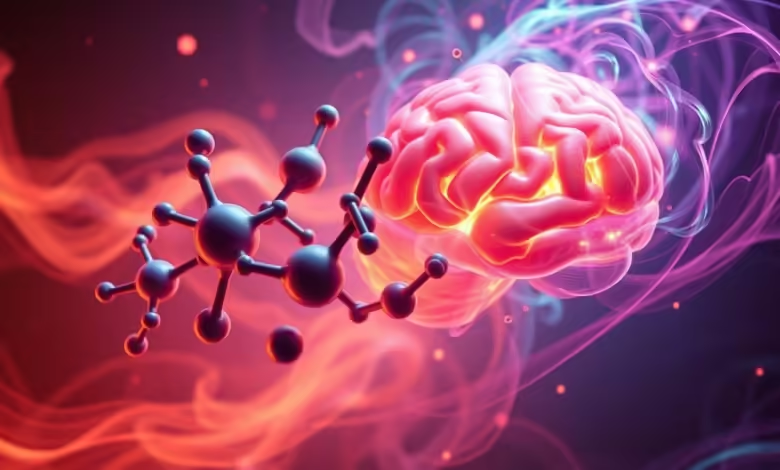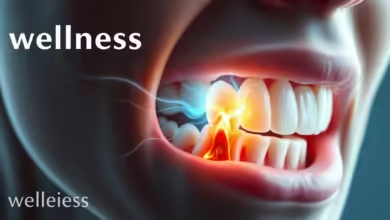does high cholesterol cause headaches

High cholesterol can really affect your health. But, many wonder if it also causes headaches. This article looks into how high cholesterol and headaches might be linked. We’ll explore the science, possible reasons, and what it means for people with high cholesterol.
A stylized representation of cholesterol molecules entwined with abstract formations of a human brain, surrounded by swirling waves of colorful energy, symbolizing tension and discomfort; the overall atmosphere conveys a sense of complexity and connection, emphasizing the relationship between cholesterol and headaches, with soft lighting and vibrant hues. “wellness”.
Key Takeaways
- It’s complicated and unclear how high cholesterol and headaches are related.
- Some research suggests a potential link between elevated cholesterol levels and the occurrence of headaches, particularly migraines.
- Potential mechanisms include vascular changes, inflammation, and the impact of cholesterol on brain function.
- Lifestyle factors, such as diet and exercise, can significantly influence cholesterol levels and may play a role in managing headaches.
- It’s important to work closely with a healthcare provider to manage cholesterol levels and address any associated health concerns, including headaches.
Understanding Cholesterol and Its Impact
The human body contains a waxy substance called cholesterol.It is essential for the production of bile acids for digestion, vitamin D, and hormones. But, high cholesterol levels can cause serious health issues.
What is Cholesterol?
The body needs cholesterol, which resembles fat, in order to function correctly. The liver makes it, and you can get it from animal foods. It helps to produce cell membranes and hormones and keeps you in good health.
Types of Cholesterol: LDL and HDL
There are two main cholesterol types: LDL and HDL.
Heart health depends on maintaining a balance between LDL and HDL cholesterol. High LDL levels can lead to heart attacks, strokes, and other heart problems.
Knowing about cholesterol types and their roles helps keep you healthy. It’s important for avoiding problems linked to high cholesterol.
The Connection Between High Cholesterol and Headaches
Research is showing a link between high cholesterol and headaches, especially migraines. Cholesterol is important for our cells but too much can affect our blood vessels. This can lead to headaches.
Studies have looked into how high cholesterol and headaches are connected. They found interesting ways that cholesterol and blood vessels might be linked to headaches.
One idea is that cholesterol can cause inflammation. High levels of LDL (low-density lipoprotein) cholesterol, or “bad” cholesterol, can make arteries clog up. This clog can cause less blood flow and inflammation, which might lead to headaches.
| Condition | Prevalence | Potential Link to Headaches |
|---|---|---|
| Hypercholesterolemia | Affects up to 38% of adults | Increased inflammation and restricted blood flow may contribute to headache development |
| Migraine | Affects approximately 12% of the population | High cholesterol levels may be a risk factor for migraines, particularly in women |
The link between high cholesterol and migraine is being studied more. Some research says people with high cholesterol might get migraines more often, especially women. This shows how important it is to know about cholesterol and vascular health when dealing with headaches.
A visual representation of cholesterol as colorful, oversized molecules intertwining with a human brain silhouette, surrounded by swirling patterns of pain or tension, symbolizing headaches. Incorporate soft gradients of blue and yellow to highlight the contrast between wellness and discomfort. Include the brand name “wellness” subtly integrated into the background.
In summary, the connection between high cholesterol and headaches is complex. By looking into how they are linked, doctors can better understand and treat headaches in people with high cholesterol.
Does High Cholesterol Cause Headaches?
Many people wonder if high cholesterol can lead to headaches. Scientists have looked into this and found some interesting facts. They’ve studied the scientific evidence and the potential mechanisms that might connect these two health issues.
Exploring the Scientific Evidence
Studies have checked if high cholesterol is linked to headaches. A big review of many studies found a strong link between high cholesterol and headaches, especially migraines. This makes it seem like does high cholesterol cause headaches might be true, based on what we know so far.
Potential Mechanisms Linking Cholesterol and Headaches
Scientists have come up with a few ideas on how high cholesterol could lead to headaches. One idea is that high cholesterol might harm blood vessels, changing blood flow and causing headaches. Another idea is that cholesterol and inflammation are connected, and this inflammation could also cause headaches.
The link between cholesterol and headaches is complex. It need more research to be completely understood. But, the current evidence hints that high cholesterol might play a part in some headaches.
A conceptual illustration depicting high cholesterol as colorful, swirling fats and plaques forming a cloud above a human silhouette’s head, symbolizing headaches; incorporating the brand name “wellness” subtly within the background, with abstract elements representing pain points around the head area.
Risk Factors and Complications
Understanding high cholesterol and its risk factors is key for heart health. Diet, exercise, and stress levels can change cholesterol levels. This affects the risk of health problems.
Lifestyle Factors That Affect Cholesterol Levels
Eating habits are crucial for cholesterol. Foods high in saturated and trans fats raise “bad” LDL cholesterol. This can block arteries and increase the risk of heart disease and stroke.
A diet full of fiber, healthy fats, and antioxidants lowers LDL and raises HDL, the “good” cholesterol. HDL helps remove excess LDL from the body.
Exercise is also important for cholesterol. Regular workouts can increase HDL and decrease LDL. This lowers the risk of high cholesterol complications like heart attack and peripheral artery disease.
Stress affects cholesterol too. Chronic stress might cause poor food habits or insufficient exercise. This can raise high cholesterol risk factors. Stress-reducing activities like meditation or yoga can help manage cholesterol.
Managing Cholesterol Levels
Maintaining a healthy cholesterol level is essential for heart health. There are ways to manage cholesterol and lower heart disease risk. Let’s look at the main ways to keep cholesterol in check.
Lifestyle Changes for Cholesterol Management
Changing your lifestyle can greatly help your cholesterol. Here are some tips:
- Eat a diet full of vegetables, fruits, whole grains, and lean proteins for your heart.
- Engage in regular physical activity for at least 30 minutes each day, such as swimming, cycling, or walking.
- Eat healthily and engage in exercise to keep your weight in check.
- Stop or cut down on smoking to improve your cholesterol levels.
Cholesterol-Lowering Medications
Sometimes, just changing your lifestyle isn’t enough to control cholesterol. Your doctor might suggest medications like statins to help. These medications reduce the liver’s synthesis of cholesterol. They can reduce LDL (bad) cholesterol and triglycerides.
It’s important to work with your doctor to find the best way to manage your cholesterol. This might mean changing your lifestyle and taking medication if needed.
Monitoring Cholesterol Levels
Checking your cholesterol regularly is key to making sure your management plan works. Your doctor will suggest blood tests to check your cholesterol levels. This way, you can adjust your lifestyle or medication to keep your cholesterol healthy.
Wellness, an artistic representation of cholesterol management strategies, featuring a vibrant assortment of healthy foods like avocados, nuts, and whole grains, alongside exercise equipment like dumbbells and yoga mats. Incorporate visual components that symbolize relaxation and meditation practices, such as peaceful natural environments or soothing herbal drinks. Use a color palette of greens and blues to evoke feelings of vitality and health.
Conclusion
This article looked into how high cholesterol might be linked to headaches. We learned that there’s not enough proof yet. But, some studies hint that high cholesterol could make headaches worse, especially migraines.
Keeping cholesterol levels in check can be done through healthy living. Eating right, exercising, and managing stress are key. Regular health check-ups help keep an eye on cholesterol levels. You can then take action to maintain your health.
Understanding the link between cholesterol and headaches helps us make better health choices. It leads to a better life and lowers the risk of health problems. By focusing on our cholesterol levels, we can keep our minds and bodies healthy.
FAQ
Can high cholesterol cause headaches?
High cholesterol might not directly cause headaches, but some studies hint at a link. High cholesterol can lead to changes in blood vessels and inflammation. This could make headaches worse for some people.
What are the symptoms of high cholesterol?
High cholesterol usually doesn’t show symptoms. Doctors find it through blood tests. Signs might include chest pain, trouble breathing, and feeling numbness or cold in your hands and feet.
Can high cholesterol cause migraines?
Some research suggests a link between high cholesterol and migraines. Increased cholesterol may lead to vascular issues and inflammation. This could lead to more migraine attacks in some people.
How can I manage my cholesterol levels?
Managing cholesterol means changing your lifestyle and possibly taking medicine. You should eat healthily, exercise regularly, manage stress, and follow your doctor’s advice if needed.
Are there any complications associated with high cholesterol?
High cholesterol without treatment can cause plaque to build up in arteries. This raises the risk of heart disease, stroke, and other heart problems. It’s crucial to keep an eye on your cholesterol and work with your doctor to manage it.



